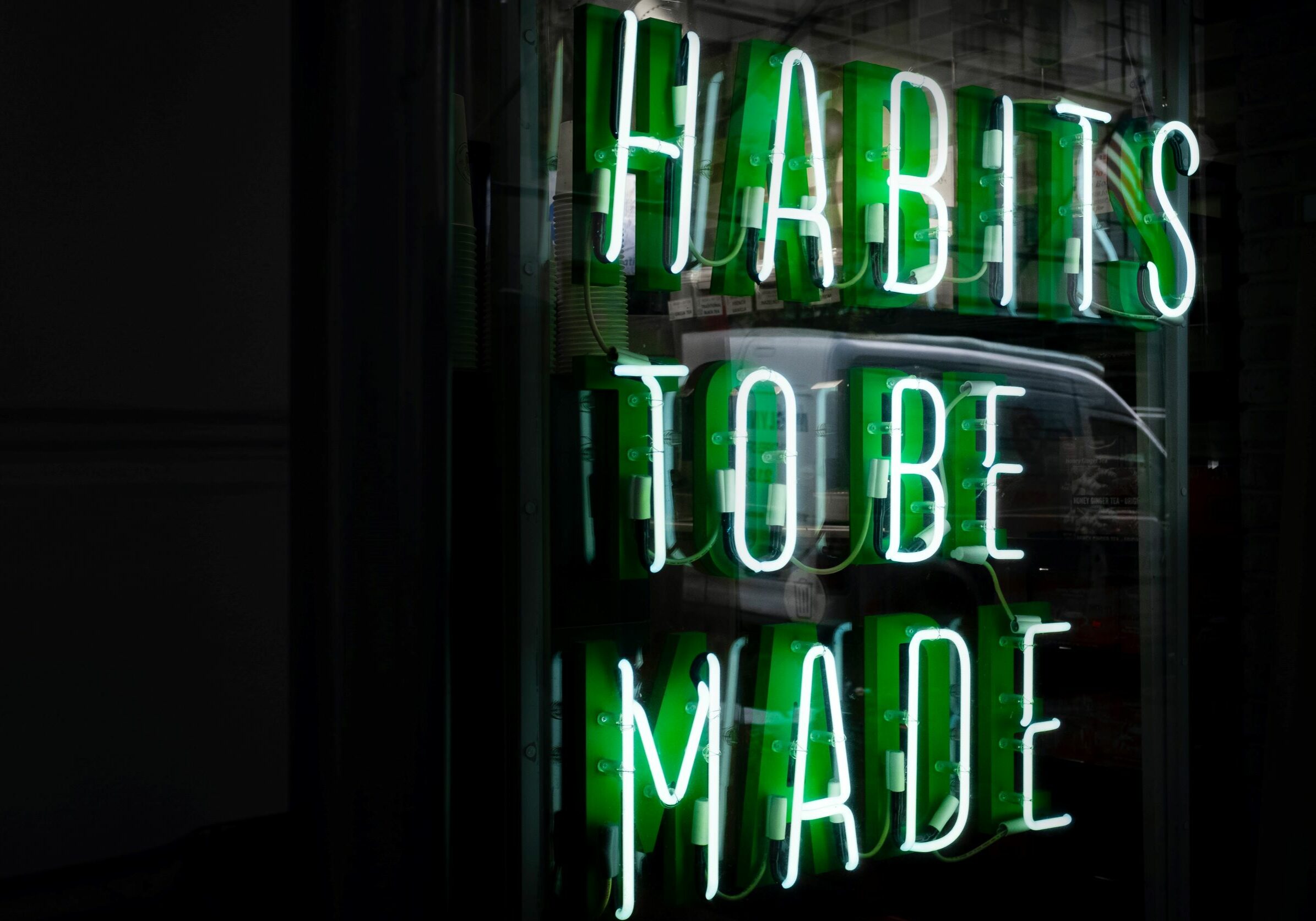Atomic Habits: Tiny Habit Changes Domino into Big Results

“You have the power to change your beliefs about yourself. Your identity is not set in stone. You have a choice in every moment. You can choose the identity you want to reinforce today with the habits you choose today.” -James Clear, Atomic Habits.
Author James Clear believes that tiny habit changes—changes at the level of an atom—can yield big results over time.
Clear, who resides in Columbus, is an expert on habit formation. In his bestseller, Atomic Habits, he explains how to develop good habits and break bad habits. For example, if you want to be known as a writer, you can start with a habit of writing 100 words a day. Over time, this habit may turn into a blog, an article, or even a book. As others learn of your new habit, they will know you as a writer.
This powerful concept can be applied to both personal and business life. Tiny habit changes can domino into realized goals.
Personal Habit Changes Start with Setting Goals
To change your life on a personal level, think about your goals: I want to be more energetic, I want to be healthier, I want to lose weight.
Then, think about your current habits. What do you do consistently EVERY single day—almost without fail? Maybe you make coffee, binge Netflix, scroll social media, snack late at night, etc.
For your habits to better match to personal goals, Clear recommends taking small steps. For example, if you want to be healthier, think about what small habits a healthy person would do—would they walk at lunchtime, drink water instead of Diet Coke, avoid snacking before bedtime? Start small with one habit change and watch it domino over time.
This same idea can be applied to a career goal. What specifically does someone in your ideal job do or know that you can learn? Is there something you can do daily to slowly realize your goal? Clear says: “Your identity emerges out of your habits. Every action is a vote for the type of person you wish to become.”
Turn negative habits into positives by reframing your mindset. For example, Clear recommends telling yourself that instead of having to do things, you “get” to do things. You get to cook dinner for your family, you get to go to work. If you want to save money, say that you get to have more financial freedom in the future if you save now.
Behavior Changes Tie to Business Results
When developing habits, it is helpful to think about behaviors around habits. Clear identifies Four Laws of Behavior Change:
1) Cue: Make it obvious
2) Craving: Make it attractive
3) Response: Make it easy
4) Reward: Make it satisfying
Cue
These behavior change principles work for both personal and business goals. For example, a cue (#1) to lose weight may involve displaying fruit on the counter. In business, a cue could be anything that gets your customer’s attention–like banner ads, emails, reminders, etc.
Craving
The second law involves making a new habit attractive. Personally, this might mean joining a group where the habit is the norm. In business, this means understanding customer predictions. “Every behavior is preceded by a prediction,” Clear states. “When it comes to business this means every purchase is preceded by a prediction. This is a key point. The customer does not buy your product; they buy the prediction it creates in their mind. They look at all the soda bottles in the vending machine and predict Coke will taste the best, so they buy it. They choose the service with the best reviews because they predict it will be the best experience.”
Response
The third law is about making it easy. Personally, this could mean an easy change like switching to water over soda when dieting versus starting a complex diet program. In business, this may mean reducing any customer frustration that could come with a purchase of a product or service.
Reward
The fourth law is to make it satisfying—does the change or new habit feel good and have a good result? For a product, did it come fast? Did it surpass or meet expectations?
Artemis Consultants is in the habit of recruiting the best candidates in SaaS, B2B Tech, and Data Services. Since 2005, Artemis has matched sought-after candidates with highly skilled positions.
In a recent Artemis survey, 100 percent of hiring managers said they would use Artemis again AND are likely to recommend Artemis to another company. 100% of candidates surveyed would recommend Artemis to a friend or hiring manager, specifically citing how Artemis prepared them for their interviews.
Self-limiting beliefs are perceptions stemming from past experiences that negatively impact one’s potential. We believe we may never reach a certain pinnacle in our career. We believe we can’t learn something because our “brains don’t work that way.” We put ourselves in a box where we curl up and get comfortable.
The good news is that you can break free from self-limiting thinking with introspection and purposeful action.
What career goals do YOU have? How can habit changes help get you there?
Start small but dream big.




